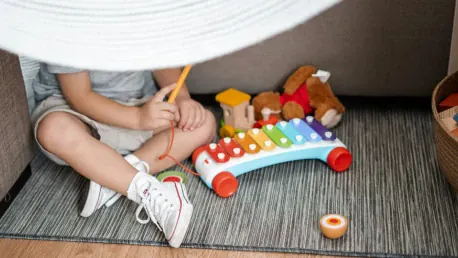Ensuring the quality and safety of your child’s daycare is a primary concern for parents. With numerous childcare choices available, identifying the best environment for your child involves understanding what constitutes high-quality care and how to evaluate it effectively. Parents often face the challenge of distinguishing between the various options to make an informed decision that prioritizes their child’s development and well-being.
Understanding Regulatory Standards
Quality childcare centers in Australia are regulated by the Australian Children’s Education and Care Quality Authority (ACECQA). These centers are assessed based on national standards, which include factors like staff qualifications, children’s health and safety, and the provided educational programs. These assessments aim to ensure that childcare services maintain a high level of care and education that supports children’s growth.
Parents can access the ratings of these centers, classified as “exceeding,” “meeting,” or “working towards” the standards. It’s important to note that these ratings can sometimes be outdated, emphasizing the need for regular personal evaluations. As the inspections might occur with multi-year gaps, a center previously meeting standards may have experienced significant changes. Therefore, parents should consider these ratings as one part of a broader evaluation process that includes their own observations and interactions with the center.
Evaluating Staff Stability
A crucial factor in a high-quality childcare center is the retention and stability of its staff. High turnover rates among educators can affect the consistency and care quality provided to children, making it harder for them to form secure relationships. The continuity of care is essential for fostering trust and aiding children in feeling safe and comfortable in their environment.
Parents should assess the tenure of staff members and observe if the same educators are present during drop-off and pick-up times. Consistent staff presence is a strong indicator of a supportive and stable environment for both children and educators. This stability is also often a sign that the childcare center values its employees, providing them with adequate support and professional development opportunities. Happy and motivated educators are more likely to deliver high-quality care and education.
Inspecting the Physical Setup
The physical environment of a daycare center plays a significant role in a child’s well-being and development. Parents should look beyond adult-friendly amenities and focus on whether the center is child-oriented, featuring engaging outdoor play areas and diverse play options. The setup should be designed to cater to children’s needs, providing a safe and stimulating environment where they can explore and learn.
A well-maintained facility with various age-appropriate toys and equipment suggests a nurturing and responsive environment that caters to children’s physical and developmental needs. Spaces should be clean and organized, with clear areas designated for different activities such as art, reading, and play. Adequate safety measures, such as secure fencing and well-padded surfaces, are also vital to minimize the risk of injuries. An environment that prioritizes children’s exploration and creativity fosters a sense of independence and curiosity.
Assessing the Educational Program
Australian childcare centers are required to offer educational programs centered around play-based learning, fostering holistic development rather than early academic skills. Parents should look for settings that encourage exploration and creativity over formal teaching. A focus on play allows children to develop critical thinking, problem-solving skills, and social competencies in an engaging and enjoyable manner.
Indicators of a quality educational program include diverse and unique children’s art displays, flexible playtime, and educators actively participating or guiding play to enhance learning experiences. This could involve teachers joining in activities, asking open-ended questions, or providing additional resources to extend learning opportunities. Additionally, observing whether the educational program is tailored to meet individual children’s interests and developmental stages can provide insights into the center’s commitment to personalized care.
Importance of Communication
Effective communication between the daycare center and parents is vital. High-quality centers regularly update parents on their child’s development, using positive and evidence-based methods to address any arising behavioral concerns. Ongoing communication ensures that parents are well-informed about their child’s experiences and progress, building a partnership aimed at supporting the child’s growth.
Parents should feel assured that their child enjoys and looks forward to attending daycare, which reflects the center’s supportive and engaging environment. The feedback from children about their interactions and daily activities can be telling indicators of the childcare setting’s quality. Moreover, a center’s willingness to listen to and address parents’ concerns demonstrates a commitment to transparency and continuous improvement.
Additional Support and Addressing Concerns
If any concerns arise regarding the quality of care, parents should initially discuss them with the center director. Open conversations can often resolve issues promptly and ensure that the daycare continues to meet the family’s expectations. Should the concerns persist, further support can be sought from relevant state or territory regulatory authorities, who can provide additional guidance and intervention if necessary.
These steps ensure parents can address potential problems comprehensively and ensure their child receives the best possible care and early education. Knowing the appropriate channels for escalating concerns helps parents feel more secure and confident about their child’s childcare setting, reinforcing the trust in the system designed to protect and nurture young children.
Ensuring an Informed Decision
Ensuring that your child’s daycare provides both quality and safety is a crucial concern for parents. With a myriad of childcare options available, determining the best environment for your little one requires a clear understanding of what high-quality care entails and knowing how to evaluate it properly. Parents often navigate through a forest of choices, making it challenging to distinguish which option will best support their child’s development and overall well-being. Identifying the finest daycare involves scrutinizing various aspects, such as the staff’s qualifications, the child-to-caregiver ratio, the cleanliness of the facility, and the presence of a stimulating curriculum. Moreover, parents need to consider the daycare’s policies on safety, nutrition, and communication to ensure that their child’s needs are met comprehensively. In the end, making an informed decision about childcare is about balancing these factors to provide a nurturing and secure environment where your child can thrive.









